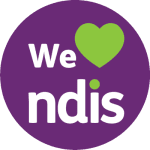Grace Children’s Therapy in Sydney’s Hills District offers a program within the Occupational Therapy setting to assist families with fussy or problematic feeding. Our aim is to assist children meet a range of daily functional goals for participating in mealtimes. The program specifically assists children that are either picky eaters or problem feeders. We use the SOS approach to feeding as the foundation for our individualized Occupational Therapy intervention for attaining feeding functional goals.
Watch this video of our SOS feeding program facilitators presenting at a parent information night. Note: the current structure of the program includes a detailed assessment and 10 weekly sessions.
Working in collaboration with caregivers, the SOS Approach (The Sequential Oral Sensory Approach to Feeding) is used to scaffold in every-day strategies for your mealtimes. Eating isn’t as simple as placing a plate of food in front of a child and expecting them to eat. Eating is a learned skill and can be quite emotional or traumatic for some children.
We assist families in the following ways via the SOS Feeding Program:
- Provide education and knowledge around feeding difficulties and strategies to overcome struggles faced daily.
- Advocate for children in understanding the emotional and traumatic triggers associated with feeding and the possible discomfort felt by the child.
- Develop the child’s oral, sensory, motor, cognitive and emotional skills required for feeding.
- Provide treatment through a structured feeding program designed to develop your child’s hierarchy of skills, behaviour around food that are new and familiar and foster a collaborative approach to care.
- Support caregivers with resources and information aimed at continued improvements in home and community environments.
Modes of Delivery and Structure
At Grace Children’s therapy we deliver the feeding therapy program at our Castle Hill practice.
Prior to starting the program, you will have a phone discussion about the program one-on-one with a member of our feeding therapy team. Once you decide to book in for an assessment, we ask you to complete a comprehensive set of forms (including mealtime stress indicators, 3-day diet history, feeding inventory and medical history). At your assessment session, you have a tour of the practice with a member of the feeding team. We also require seeing your child eat 3 preferred foods and we also have you bring in 3 foods they are not as likely to eat. This helps us see motor planning, sensory / behaviour responses to foods and oral motor skills. This helps us all be aligned with the expectations of the 10 week program and assists us further with the strategies we will be coaching your child on from week one. The assessment session is to determine a good fit for the peer group program. Having an assessment is valuable for your understanding of the program and your child’s feeding journey too. An assessment does not guarantee automatic placement in the feeding therapy program. Many factors go into determining the groups.
The program runs for 10 weeks. Each week consists of gross motor exercises followed by a structured therapy meal. The therapy meal includes a range of foods from a variety of food groups and texture groups. The foods are presented one-by-one, which is different to how meals at home may work. Therapy meals focus on a child’s skill-set and how they can respond to a range of foods. Sometimes the food is presented a few times through the course of the program to evaluate progress of the underlying skills required for eating.
Mealtime skills we work on in the therapy meal include (but are not limited to):
- Being comfortable with new foods in the room (tolerance).
- Being able to sit at a table for therapy meal duration.
- Improving emotional regulation at mealtimes.
- Social participation with peers in a meal setting.
- Sensory resilience to bigger smells, tactile inputs (like powdery and wet foods), different levels of noise that food makes, different visual cues from foods and different tastes.
- Improved courses of action to cope with foods they don’t currently want to eat.
- Motor planning tasks of cutting, spoon feeding, using forks and open cup drinking.
- Improved chewing and oral motor skill.
The program also includes a final report and follow-up with a member of our therapy team to ensure you are supported at home too.
More about the SOS Approach to feeding
The SOS Approach to Feeding program was developed by Dr Kay Toomey. The program is an effective way to address problematic feeding behaviours. Caregivers and parents of children who will not eat are faced with difficult and often puzzling challenges.
The interplay between weight gain, nutrition and a child’s experience with food is often complicated and there is rarely an easy solution when a feeding problem arises. The SOS Approach considers the child as a “whole” and looks at the organ systems, muscles, general development, sensory concerns, oral-motor skills, behaviour, cognition and nutrition as well as the considers the environmental factors impacting on mealtimes.
Grace Children’s Therapy focuses on increasing the child’s comfort level by allowing them time to explore food and discover the many different properties of food and allows the child to interact with food in a playful and non-stressful way.
Next Steps
Find out more about the program by signing up to our newsletter and selecting the feeding program in your preferences. Upon selection, you will receive 12 tips to improving feeding problems straight to your inbox.
Yet, to register your interest immediately in the program, please complete the contact form here or call us on 1300 760 779. We will send you a full information pack (including prices) and arrange a feeding therapy team member to have a chat with you.


